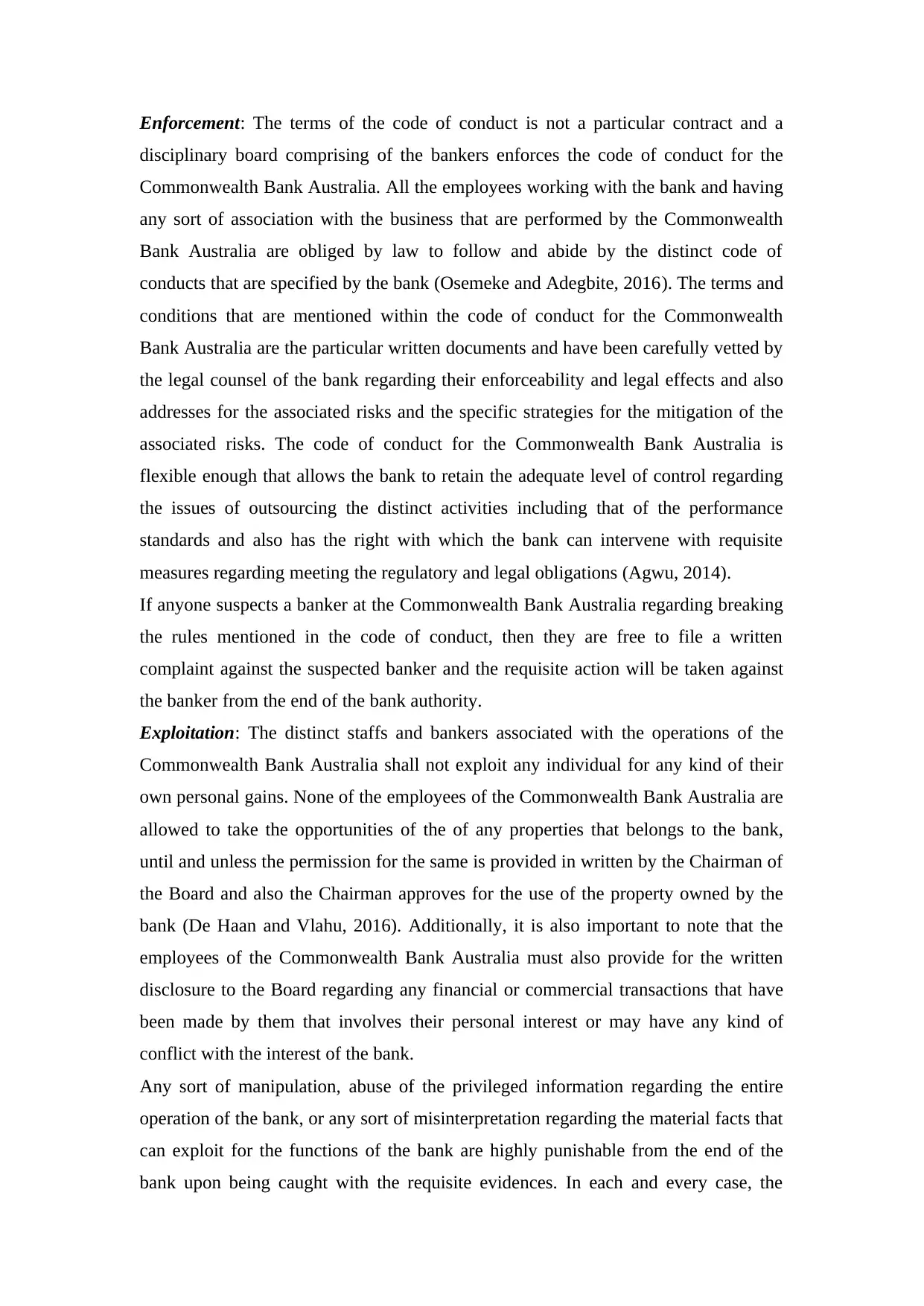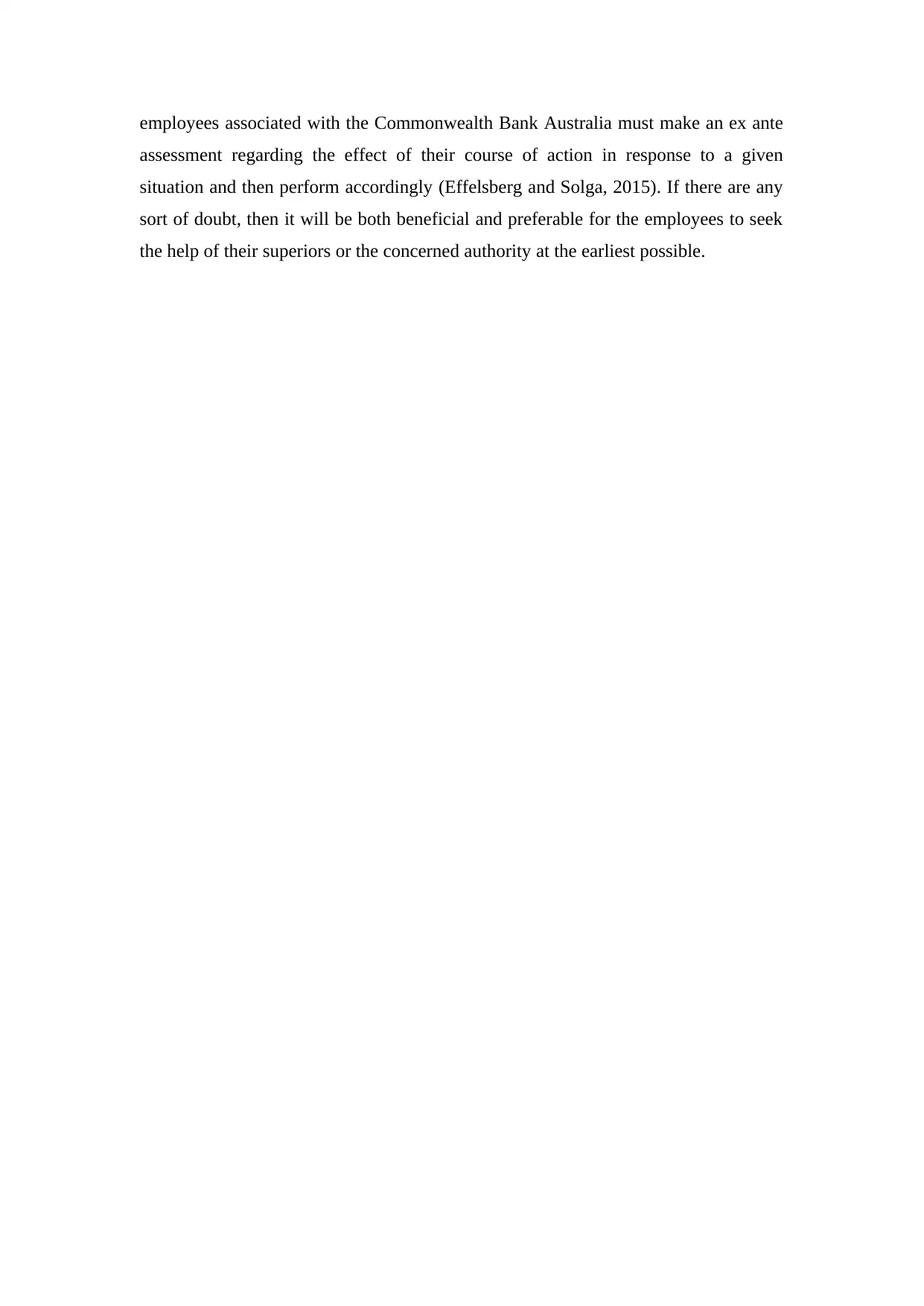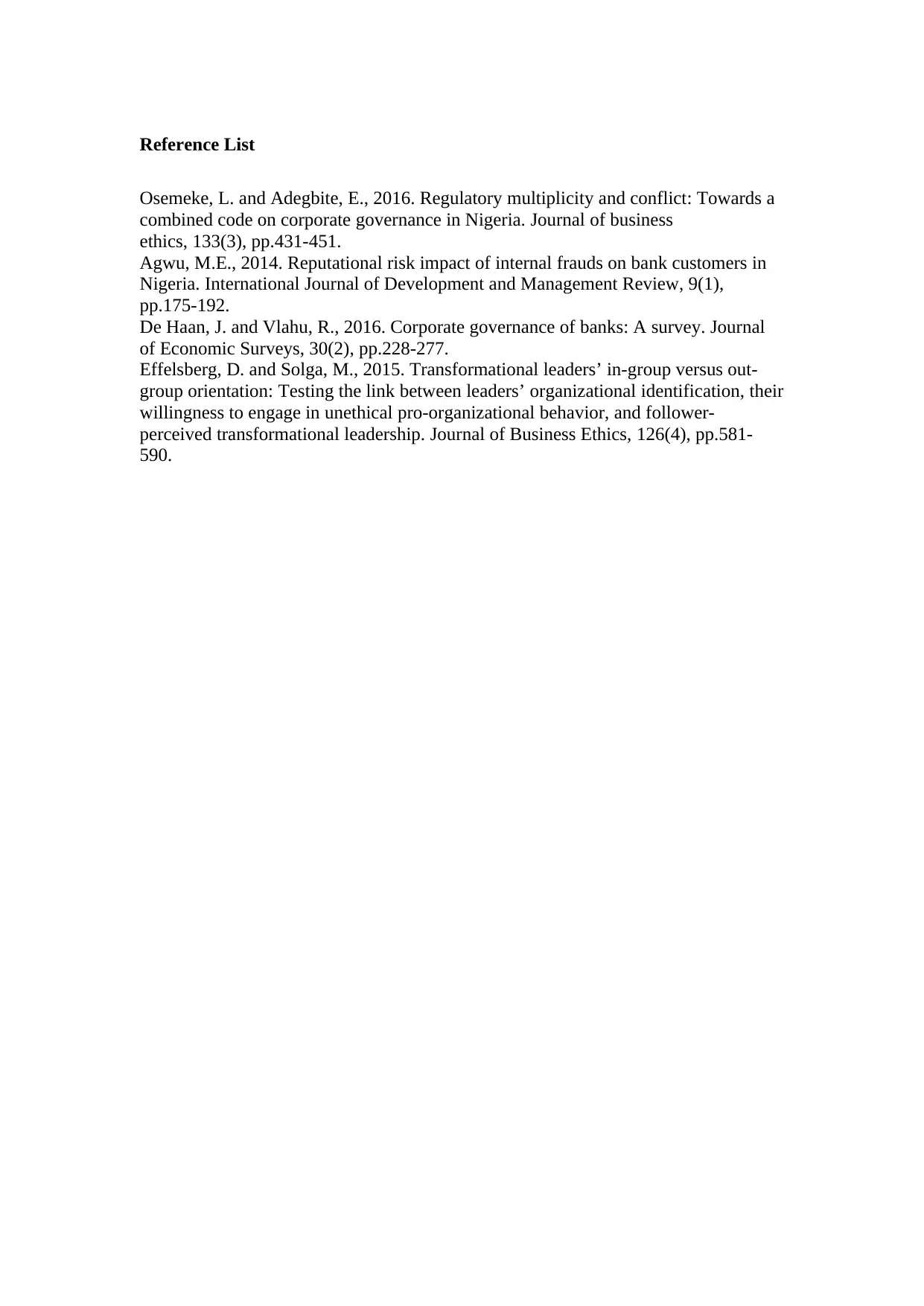Commonwealth Bank Australia Code of Conduct: Enforcement Analysis
VerifiedAdded on 2023/06/07
|4
|712
|324
Report
AI Summary
This report delves into the code of conduct of Commonwealth Bank Australia, focusing on its enforcement mechanisms and implications for employees. It highlights that the code, enforced by a disciplinary board, applies to all employees and associates. The report emphasizes the bank's legal vetting of the code, its flexibility in outsourcing activities, and its intervention rights to meet regulatory obligations. It also covers the process for reporting suspected breaches and the consequences for employees found exploiting individuals or bank resources for personal gain. The importance of ex ante assessments and seeking guidance from superiors is stressed to ensure ethical conduct and compliance with the bank's policies. The document also includes a reference list of relevant academic articles.
1 out of 4









![[object Object]](/_next/static/media/star-bottom.7253800d.svg)